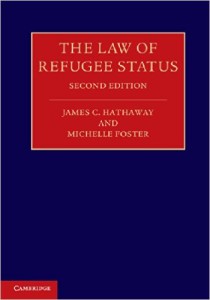 Observed annually on April 10th, National Farm Animals Day was created as a day to raise awareness about the plight of slaughtered animals and to find a home for the abandoned and abused farm animals. Use #NationalFarmAnimalsDay to post on social media. The day was created in 2005 by animal rescuer, vegetarian and celebrity pet lifestyle expert, Colleen Paige.
Observed annually on April 10th, National Farm Animals Day was created as a day to raise awareness about the plight of slaughtered animals and to find a home for the abandoned and abused farm animals. Use #NationalFarmAnimalsDay to post on social media. The day was created in 2005 by animal rescuer, vegetarian and celebrity pet lifestyle expert, Colleen Paige.
The Montague Law Library currently has these resources on the 2018 National Farm Animals Day theme:
Print:
The encyclopedia of historic and endangered livestock and poultry breeds / Janet Vorwald Dohner
Call no.: SF105.275.U65 D65 2001
The need to preserve farm animal diversity is increasingly urgent, says the author of this definitive book on endangered breeds of livestock and poultry. Farmyard animals may hold critical keys for our survival, Jan Dohner warns, and with each extinction, genetic traits of potentially vital importance to our agricultural future or to medical progress are forever lost.
The little book of cowboy law / Cecil C. Kuhne III
Call no.: KF1730.K84 2012
This collection is a captivating look at the subset of American jurisprudence that illustrates the unique character of cowboy culture. But even with the freedom and relative lawlessness we associate with them, the cowboy — like the rest of society — was never far from the courthouse, and the book you have before you contains some fascinating legal disputes that have made their way to the bench.
Animals confined for human benefit : a legal research guide / by Stefanie S. Pearlman & Melissa M. Serfass
Call no.: KF240.L44 v.59
Animals are confined for many reasons: to create food for human consumption, to study in research facilities, and to use for entertainment. Federal and state laws exist in an attempt to strike a balance between the welfare of these confined animals and the human benefit derived from their use. This growing body of law is the subject of this legal research guide. This title covers farm animals, laboratory animals, and exhibition and entertainment animals. Animals used for exhibition and human entertainment is a broad topic that includes zoos, rodeos, circuses, animal fighting, and canned hunting. (Traditional hunting is covered in this guide, as the animals are not confined.) This guide will assist researchers by providing the statutes, regulations, cases, and secondary resources needed to begin their research in this new and exciting area of law.
A Guidebook on community participation in addressing disputes over intensive livestock operations / by John C. Becker [and others]
Call no.: HT393.P4 G84 2001
The guidebook outlines a series of participation processes that communities can select when conflicts over the siting of intensive livestock operations arise. The process described offers communities a way to address some of the difficult problems they face with intensive livestock operations.
Databases:
Animal Health and Production Compendium
Contains information on livestock and poultry breeds, diseases, pathogens, foodborne contaminants and food animal products. As well as over 135,000 bibliographic records updated weekly and over 13,000 Library and full text journal and conference articles.
CAB Abstracts (agriculture, nutrition and global health)
CAB Abstracts via CAB Direct covers all areas of agriculture including animal production and welfare (equine, dairy, cattle, poultry), horticulture, (fruits, nuts, vegetables ornamentals, flowers) crop science (grains, forages) and plant protection, applied economics and rural studies, animal nutrition, entomology, aquaculture and veterinary science, food science and nutrition, forestry and the management and conservation of natural resources, leisure and tourism, microbiology, parasitology, mycology, nematology, bacteriology and virology, biotechnology, and plant pathology and postharvest factors.
National Agricultural Library Digital Repository (NALDR)
The National Agricultural Library Digital Repository(NALDR) provides access to historic publications of the Department of Agriculture either digitized by NAL or through NAL’s partnerships with other institutions.






 Human rights protection for refugees, asylum-seekers, and internally displaced persons : a guide to international mechanisms and procedures
Human rights protection for refugees, asylum-seekers, and internally displaced persons : a guide to international mechanisms and procedures The right not to be displaced in international law
The right not to be displaced in international law Making people illegal : what globalization means for migration and law
Making people illegal : what globalization means for migration and law The law of refugee status
The law of refugee status